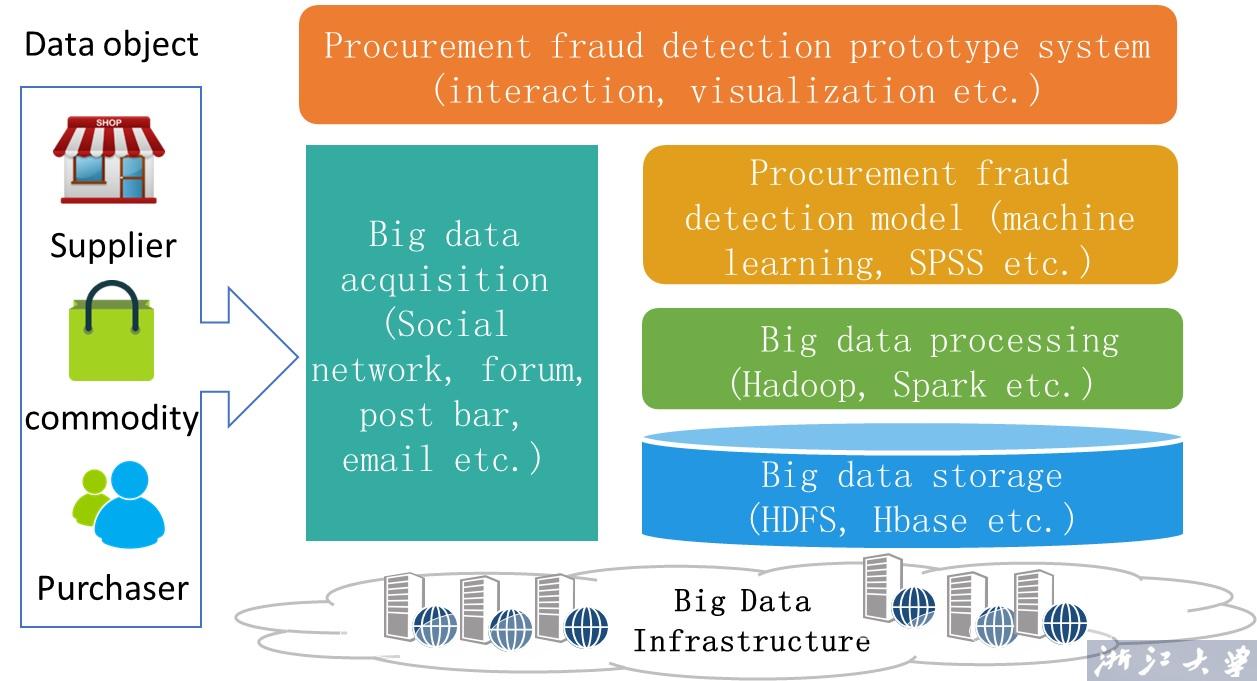Procurement fraud creates significant loss and is difficult to detect. IBM T.J. Watson Research Center initiated Procurement Risk Analytics (PRA) project last year, and GPS Ningbo team is responsible to implement and support. This project employs various analytics from advanced machine learning to simple arithmetic queries, statistical tests, outlier detection methods, text analytics built using SPSS, Java and SQL.However we believe there are still significant analytics opportunities exist on the social network to limit exposure to loss.
The Procurement fraud Analytics on the social network SUR project proposes to include Zhejiang University to focus on research and implementation of procurement fraud analytics based on social network analytics .This project will apply multiple data mining technologies to assess closeness of connections, qualification of suppliers and identify collusion likeliness. To better make the project in IBM, a strong team from IBM Research team, China Development Lab (CDL), will work closely with universities
Project Goals
Project Definition
The procurement of governments or large companies always involves with many people and purchasing links. If not effectively monitored, it is prone to fraud and corruption. The traditional way to strengthen supervision by human leads to huge administrative cost. With the rapid development of information technology, an effective way to discover fraud by analyzing the data produced during the procurement is considered. However, analyzing only the internal information related to procurement staff is not enough, lots of potential irregularity information is hidden in the external information (e.g. social network, forum etc.). But, the amount of external information is very big, traditional data storage and analysis techniques are unable to deal with it. This project plans to solve this problem with the big data technology developed by College of Software Technology, Zhejiang University. The internal and external information of the procurement staff, the information of the suppliers and commodities on the internet will all be collected, stored and analyzed to effectively detect and eliminate the potential fraudulent behavior. The prototype system will provide the basic interaction with users and the visualization of the detection results. The framework of the project is shown in the following figure.

The project will focus on the following aspects of the research and development:
Innovation
Technical Value
Procurement fraud has a detrimental effect on both governmental agencies and companies. However, it is difficult to detect such kind of fraud due to reasons such as complexity of procurement and invisibility of fraud.
In this project, we propose a procurement fraud detection model based on social networks. By collecting data from popular social networks and internal sources (such as email content, databases), the personal relationship model can be constructed. Then, we also develop methods including advanced machine learning methods to simple queries, which can help discover whether the relationship exists between specific targets and what kind the relationship is. The result could be useful to detect the potential procurement fraud behaviors.
With the growing popularity of social networks, more and more people publish information. The increasing data volume will improve the accuracy of our model, which could help to make the procurement practices more transparent.
Besides, the model and method proposed in this project can also be used for general person investigation and personal relationship analysis, and their future application in areas such as social, intelligence, business and finance is also promising.